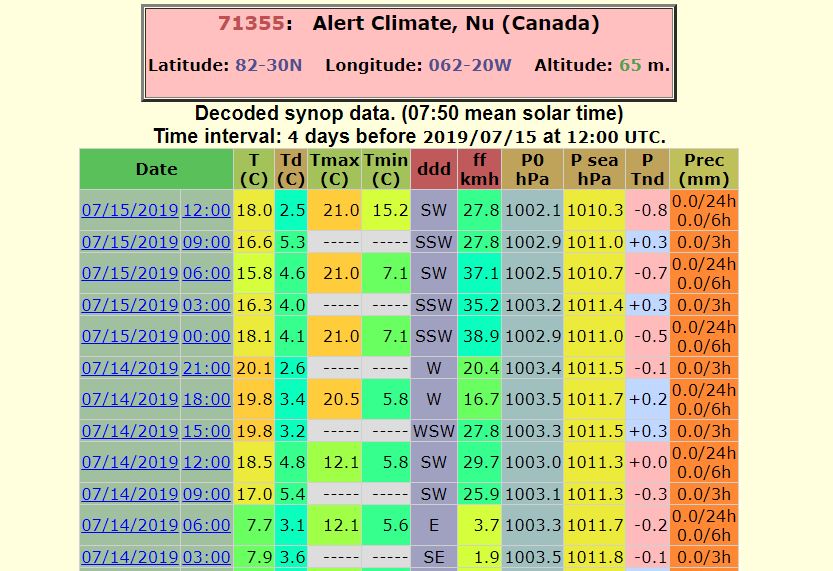This is the latest anomaly in what’s been a long, hot summer across the Arctic.
A new absolute temperature record has been set in Alert, Nunavut, on July 15, 2019, with a max temperature of 21°C (69.8°F), beating the previous max of 20°C (68°F) in 1956. This is also the world record above lat 80.0°N.

Weather scientists are baffled:”It’s really quite spectacular,” said David Phillips, Environment Canada’s chief climatologist. “This is unprecedented.“
Alert, Nunavut was warmer on Sunday and Monday than Victoria, B.C., a Canadian go-to for balmy climes.
Alert, in the Qikiqtaaluk Region, Nunavut, Canada, is the northernmost permanently inhabited place in the world, at latitude 82°30’05” north, 817 kilometres (508 mi) from the North Pole.
The warmest month, July, has an average temperature of 3.4 °C (38.1 °F), with only July and August averaging above freezing. Alert is also very dry, the fourth-driest locality in Nunavut, averaging only 158.3 mm (6.23 in) of precipitation per year.
+21.0°C was measured in Alert, Nunavut, #Canada yesterday. This is a new maximum temperature record at the station (previous record was +20.0°C measured in July 8, 1956) and also a world record above 80°N. https://t.co/erDbvakYtp
— Antti Lipponen (@anttilip) 15. Juli 2019
Interestingly, Alert hosts a military signals intelligence radio receiving facility at Canadian Forces Station Alert (CFS Alert), as well as a co-located Environment Canada weather station, an atmosphere monitoring observatory called Global Atmosphere Watch (GAW) and the Alert Airport.
During the Cold War, Alert was a key asset in the UKUSA network of SIGINT collection stations.
Alert is a remote place in Nunavut, full of strange military and weather stations. Are they hiding something to us?
[OgiMet, Iproc, Wikipedia, CBC]












